52 Days of Thanksgiving

52 Days of Thanksgiving
Top-notch recipes, expert tips, and all the tools to pull off the year’s most memorable feast.
Check It OutPopular on Food52
27 Comments
Stephanie
November 29, 2013
I haven't made mashed potatoes yet--it'll be later this weekend that we make grandma's recipe. But I never added dairy of any sort to mashed potatoes. Grandma boiled potatoes and a large onion in a pot of salted water. Drain, reserving some of the water. Then mash, onion and all, with a hand masher.
Meanwhile, fry onions on the stove in oil (or shmaltz, but not for this vegetarian) until most are deep brown and 1 or 2 start to blacken. Transfer the potatoes into a casserole dish, stir in salt, pepper, a little cumin. Put an egg if you feel like it. Then gently swirl the onions through, along with the oil, putting some on top. Bake for a bit (I have no idea how long!)
Meanwhile, fry onions on the stove in oil (or shmaltz, but not for this vegetarian) until most are deep brown and 1 or 2 start to blacken. Transfer the potatoes into a casserole dish, stir in salt, pepper, a little cumin. Put an egg if you feel like it. Then gently swirl the onions through, along with the oil, putting some on top. Bake for a bit (I have no idea how long!)
turnit
November 27, 2013
Very succinct article. It sparked great comments. And with your replies it became a knowledgeable forum. Instead of just a list of ingredients and procedures there was the science and logic that sealed the deal. We aren't being merchandised. We're sharing. That's called a holiday. Thanks to all.
FischFood
November 25, 2013
Very important tip... be sure to add your butter first before adding the milk or cream. Little bit of science here, as the fat added before any liquid prevents the potato from becoming "pasty" or gummy. Once the potatoes are done with the boiling, drain water and put back the pot back on stove to "dry" any remaining moisture. Then add the fat, followed by the dairy liquid of choice.
Dorothy
November 25, 2013
Thx for your comments. Got a lot of great tips. HAPPY THANKSGIVING TO ALL!
carol M.
November 25, 2013
I read this hoping to get some new info, but I have to politely disagree with a couple of things. First, since when do reheated potatoes taste as good? I have eaten my share of leftover potatoes (even cold for breakfast) and they are good, sure, but not the same as fresh. They can be kept for several hours in a crockpot or in whatever big bowl you're going to serve them in, placed over a big pot of simmering water. Second, yes, ricing and steaming is great, but I have 14 people coming for Thanksgiving and will be doing ten pounds of potatoes - I have never seen a ricer big enough to handle that quantity in a reasonable amount of time (or without the potatoes getting cold - and me getting very testy. Finally, I find that as long as you mash them (and I do use an electric mixer) first before you add milk or cream, you can ensure there will be no lumps. Once you add milk, lumps are permanent. I do add butter and salt first. Lots!
Elana C.
November 25, 2013
Thank you for weighing in, Carol. That sounds like a solid plan for dealing with extra large batches of potatoes.
tastysweet
November 24, 2013
I always seem to have questions. I like the idea of steaming. But if you are doing say 7 pounds of potatoes, do you have any tips on how to do this? Help please.
Elana C.
November 24, 2013
That's a whole lot of potatoes. I would suggest steaming them in batches!
Deborah
November 26, 2013
@tastysweet in my house we regularly mash 10lbs of potatoes and effectively steam them by making the first layer of potatoes the support and keep the rest of the potatoes out of the water and steamed.
Dorothy
November 24, 2013
Can I reheat them the next day with the crock pot? I am going to my sisters. Would like to make them the day before.
tastysweet
November 25, 2013
Crock pot is a great idea. So if you make them the day before and have to bring them somewhere, how long to reheat? Hours?
Jeannine D.
November 24, 2013
Thx Emcsull, what's the downside?
Elana C.
November 24, 2013
No major downside. You just have to be careful that they don't dry out too much. I would add a few drops of water and cover them while nuking. You might need to add additional milk as well.
Lydia
November 24, 2013
Loved your idea to steam the potatoes, rather than boiling them, but after all that, why pour 'gravy' on the potatoes? Won't the gravy be happier on the meat instead?
Elana C.
November 24, 2013
Ha, yes. That's just what I do when I eat mashed potatoes on Thanksgiving. I always put a big spoonful of gravy on top.
Diane T.
November 24, 2013
I mash my potatoes first, then take my $9 el cheapo crockpot used only for such occassions, line it with a healthy dollop of butter, throw in the mashed potatoes, finish with another dollop and voila, one last thing to worry about at the last minute. Keeps them perfect.
Cookie!
November 21, 2013
Try mashing your potatoes with buttermilk instead of cream. A tasty swap made out of desperation when I ran out of cream.
Nina L.
November 21, 2013
Usually I go straight to the masher, but you have inspired me to use my ricer for my Thanksgiving mash. One thing, I usually melt my butter along with the milk/cream. Any reason not to?
Elana C.
November 21, 2013
Glad to hear it! Adding cold butter allows the fat of the butter to distribute evenly in the potatoes.
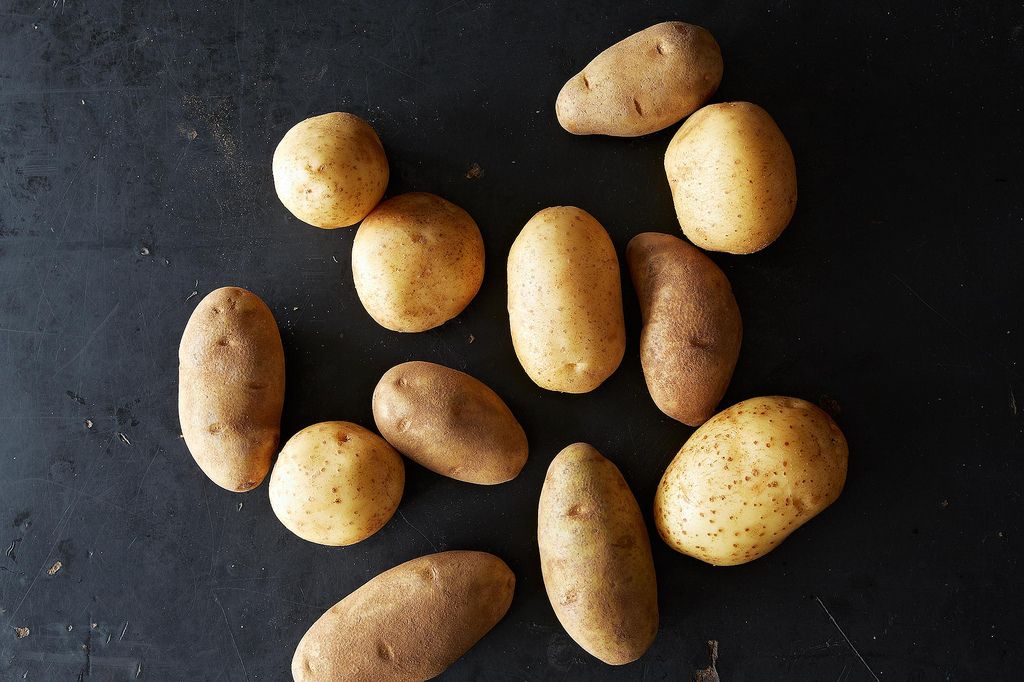
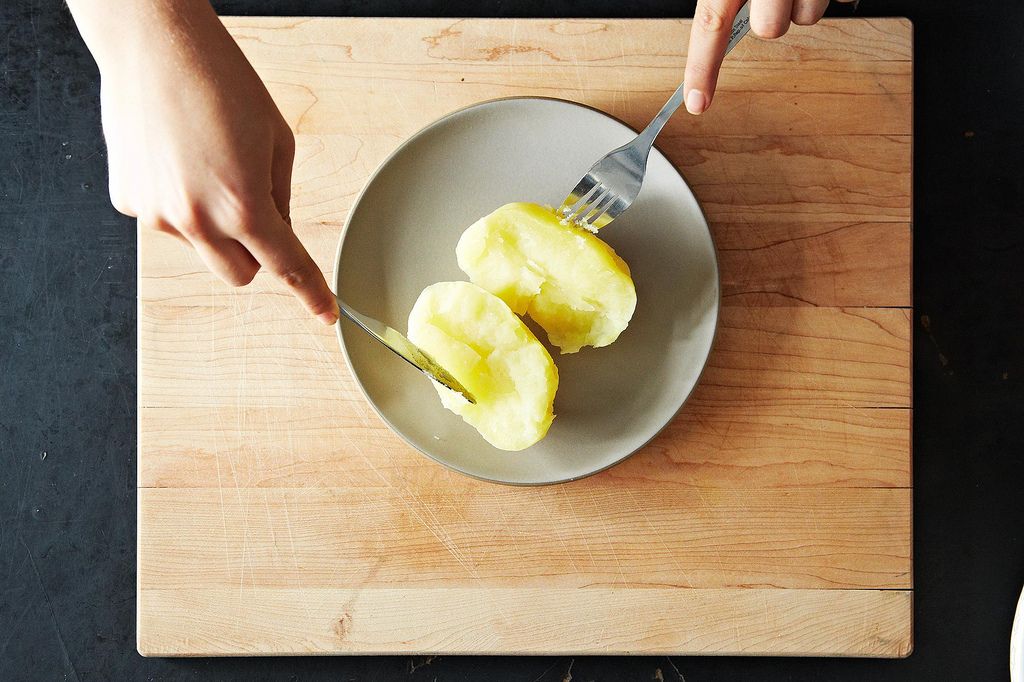
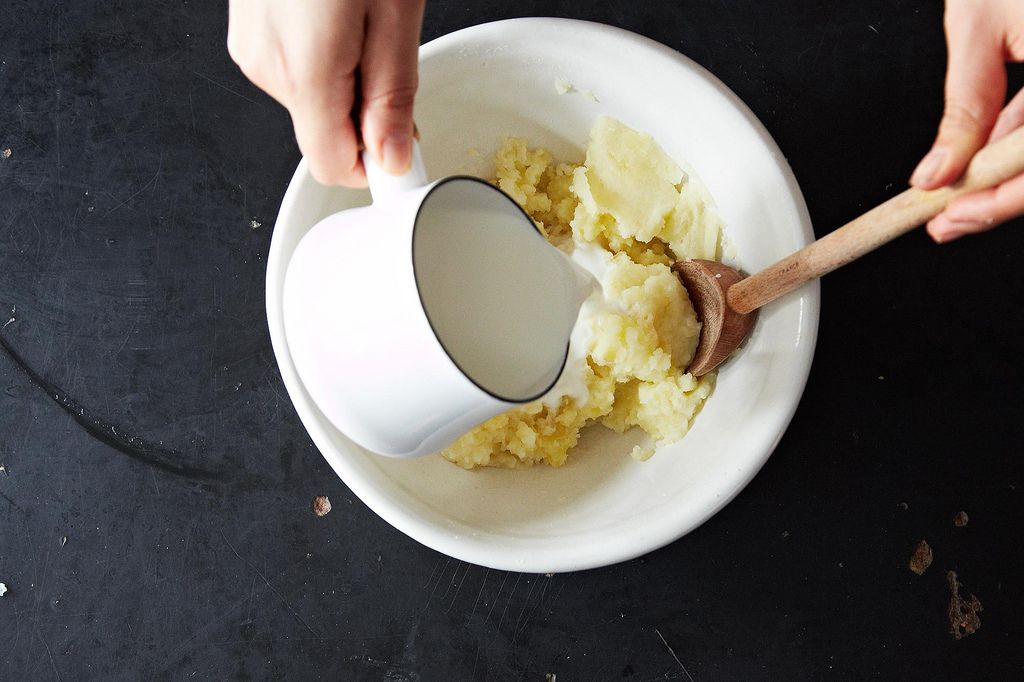
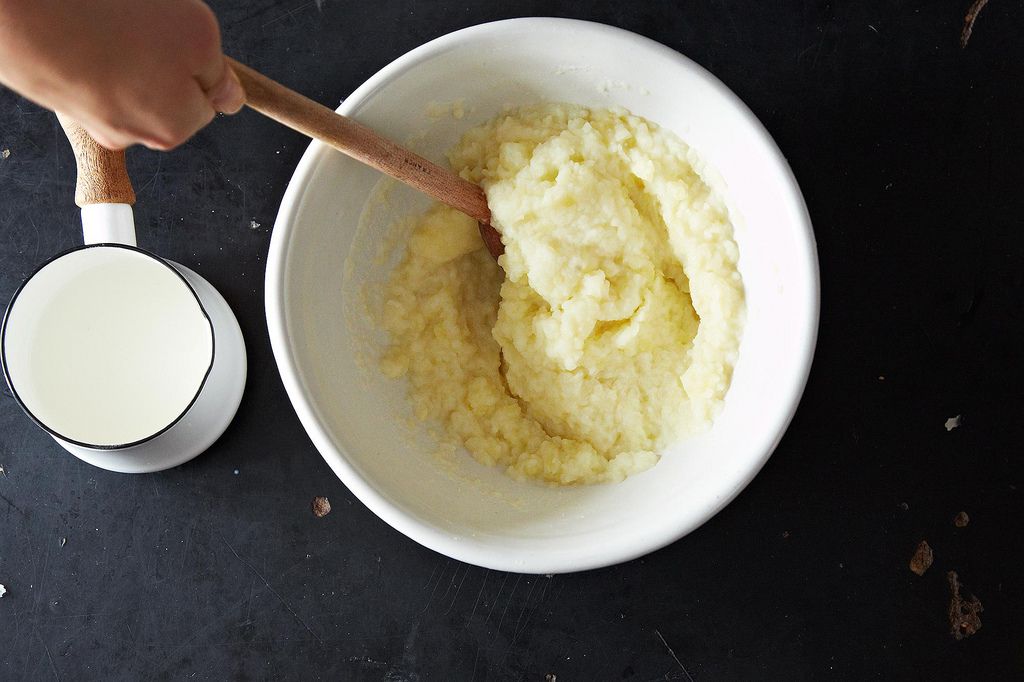
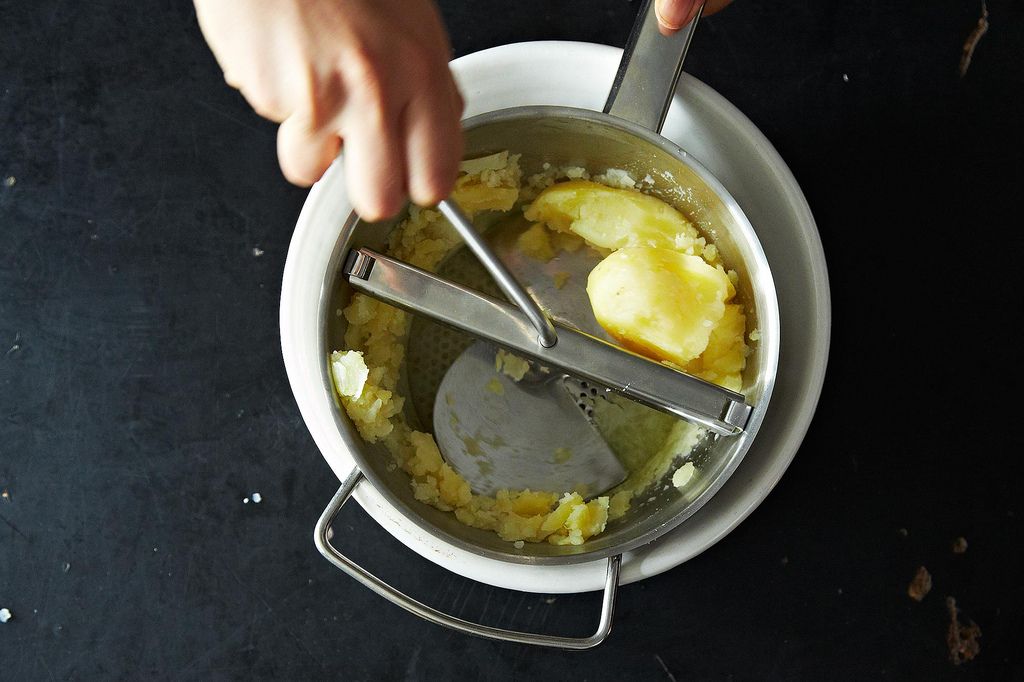
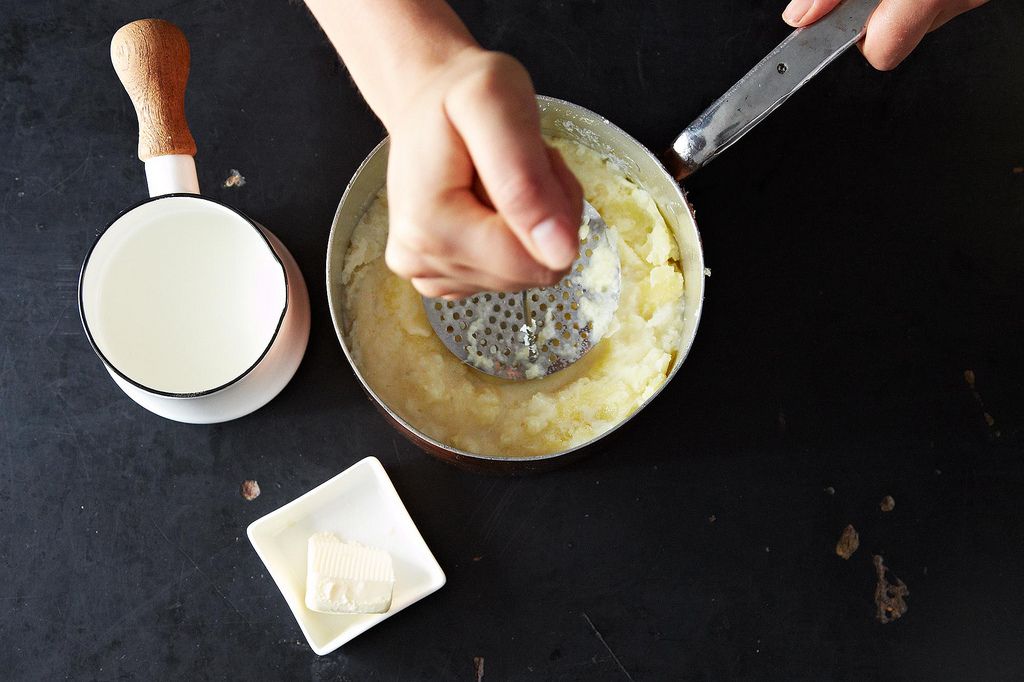

See what other Food52 readers are saying.